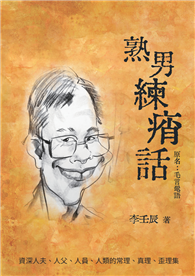Although Michelangelo Antonioni became one of the icons of "modernist" cinema in the 1960s, his position in the pantheon of great directors has never been quite secure. Unlike his famous contemporaries, such asIngmar Bergman and Luchino Visconti, whose essential contribution to the art of cinema is hardly ever questioned, Antonioni’s work has been repeatedly denigrated from many angles for both aesthetic and political reasons. Though the historical importance of some of Antonioni’s films as an incarnation of certain attitudes and problems characteristic of the 1960s and 70s is not denied, they are often considered passé, artificial and boring.
Contesting prevalent readings, which focus on existential and psychological motifs involving anxiety and the malady of sentiments, this book offers a re-evaluation of Antonioni’s most important films interpreted as political cinema engaged with issues which are still crucial in the 21st century. Far from being politically neutral, Antonioni’s oblique and "abstract" approach makes possible the prising open and devaluation of the morally and politically constrictive "organic" narrative structures. HIs approach overthrows the primacy of character and plot, on the one hand, by showing them to be emanations of the spectral materiality of capital, and, on the other hand, by allowing for an opening into the utopian dimension, implying engagement in the rethinking of our attachments to the world.| FindBook |
有 1 項符合
Secret Violences: The Political Cinema of Michelangelo Antonioni, 1960-75的圖書 |
 |
Secret Violences: The Political Cinema of Michelangelo Antonioni, 1960-75 作者:Maslon 出版社:Bloomsbury Academic 出版日期:2024-11-28 語言:英文 規格:平裝 / 200頁 / 22.86 x 15.24 x 2.54 cm / 普通級/ 初版 |
| 圖書館借閱 |
| 國家圖書館 | 全國圖書書目資訊網 | 國立公共資訊圖書館 | 電子書服務平台 | MetaCat 跨館整合查詢 |
| 臺北市立圖書館 | 新北市立圖書館 | 基隆市公共圖書館 | 桃園市立圖書館 | 新竹縣公共圖書館 |
| 苗栗縣立圖書館 | 臺中市立圖書館 | 彰化縣公共圖書館 | 南投縣文化局 | 雲林縣公共圖書館 |
| 嘉義縣圖書館 | 臺南市立圖書館 | 高雄市立圖書館 | 屏東縣公共圖書館 | 宜蘭縣公共圖書館 |
| 花蓮縣文化局 | 臺東縣文化處 |
|
|
圖書介紹 - 資料來源:博客來 評分:
圖書名稱:Secret Violences: The Political Cinema of Michelangelo Antonioni, 1960-75
|










